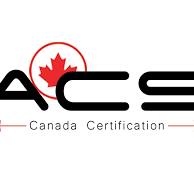HACCP, the oldest food safety management model initially applied by NASA in the 1960s and later supported by FAO-WHO in the 70s, has become a cornerstone of ensuring food safety.

HACCP, the oldest food safety management model initially applied by NASA in the 1960s and later supported by FAO-WHO in the 70s, has become a cornerstone of ensuring food safety.
In the United States, its full adoption was realized with the Food Safety Modernization Act (FSMA) passed by Congress in 2011. The second rule of FSMA focuses on human food preventive controls, aligning with HACCP's risk-based scientific approach to food safety management.
HACCP, originally applied by NASA in the 1960s and later supported by FAO-WHO in the 1970s, has become a cornerstone of ensuring food safety. Its full adoption in the United States came with the Food Safety Modernization Act (FSMA) in 2011. FSMA established seven rules, including the second rule that focuses on human food preventive controls, aligning with the risk-based scientific approach of HACCP.
Scientifically grounded and systematic, the HACCP system identifies specific hazards and implements controls to ensure food safety. It emphasizes prevention rather than relying solely on end-product testing and addresses a wide range of hazards, including biological, chemical, physical, and allergenic risks. The flexibility of HACCP allows for adaptations to equipment design, processing techniques, and technological advancements.
While HACCP can be applied throughout the food chain, its implementation should be guided by scientific evidence of human health concerns. In addition to enhancing food safety, HACCP offers numerous benefits. It enables regulatory bodies to verify food safety measures and promotes international trade by instilling confidence in the safety of food products.
ACS Canada takes great pride in being a dynamic collaboration of highly experienced managers and experts hailing from Canada, the United States, and Asia.
With a wealth of over 25 years in organizational and operational expertise encompassing quality management, food and agriculture safety, environmental practices, and occupational health and safety, we have emerged as the preferred choice for comprehensive management systems assessments.
We are truly honored to be recognized as an esteemed A+ accredited business by the esteemed Business Accreditation Bureau of Canada. This recognition underscores our unwavering commitment to delivering top-tier certification services.
We are thrilled to announce that ACS Canada has joined the prestigious ranks of the International Association for Continuing Engineering Education (IACEE). As a member, we are deeply committed to advancing and enriching lifelong engineering education worldwide.
This affiliation with IACEE empowers us to further enhance the quality and reach of our seminars and training courses. Our participants, who receive ACS Canada training certificates, now stand to benefit even more. This membership opens up a world of opportunities, connecting them to a global network of engineering education excellence.
In addition, we take immense pride in our collaboration with ACS USA, an esteemed certification body comprising seasoned industry professionals and managers from North America. Through this invaluable partnership, we leverage our combined expertise to provide unparalleled services to our esteemed clients.
As proud members of IFOAM-Organics, a distinguished global membership-based organization, we actively contribute to the promotion of true sustainability in agriculture worldwide.
Our dedication to fostering industry growth is further exemplified by our membership with Food Processing Skills Canada (FPSC). Through close collaboration with Canadian government, FPSC develops pragmatic programs and policies that resonate with the ever-evolving food industry.
At ACS, our core purpose revolves around equipping individuals and companies with the essential tools to become leaders in their respective industries. We firmly believe in elevating management certification to the status of a pivotal business discipline, thereby making certification competencies and skills accessible to individuals worldwide.
We are steadfast in our mission to democratize business certification competencies and skills by positioning management certification as a fundamental business discipline.
Through the collective efforts of a global board of experts, we strive to develop industry standards and a comprehensive body of knowledge for management certification. Our mission extends beyond mere development as we are committed to providing widespread access to effective learning mechanisms that cultivate these invaluable skills.
Recognizing the achievements of individuals, we issue globally recognized certificates through our extensive network of esteemed partners.
As trailblazers in the realm of certification bodies, we envision ourselves as the driving force behind the establishment of global standards and the body of knowledge for management certification.
Guided by the expertise of our esteemed board, we define the competencies and skills necessary for certification, ensuring their enduring relevance in the ever-evolving business landscape. Through our extensive network of partners, we empower individuals across the globe to access these critical competencies and skills, enabling them to attain professional recognition and unlock their growth potential.
© 2025 coursetakers.com All Rights Reserved. Terms and Conditions of use | Privacy Policy